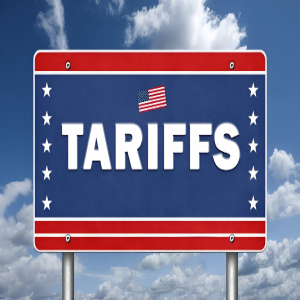
.png) Robert Clements
Robert Clements
.png)
As fresh tariffs are slapped on Indian exports, the world watches with raised eyebrows and recalibrated spreadsheets. Economists mutter about supply chains, trade deficits, and currency pressures. But while we scramble to respond to these external challenges, there's a heavier, more invisible burden that India drags along—a burden not imposed by Washington but born right here, at home.
I call it the tariff of hate. And unlike the ones printed in budget documents, this one never expires.
India has what it takes to be a superpower.
There's no shortage of intellect. Our minds have powered global tech firms, our scientists have sent probes to the moon, and our entrepreneurs have created start-ups out of thin air and jugaad schemes. But even the best runner can't win if he's carrying a sandbag on his back.
And hate, communal hate, in particular, is exactly that.
We've become a nation trying to sprint toward global leadership while dragging the dead weight of division. Every time a minority is demonised, every time a citizen is judged by their faith rather than their contribution, we add another kilo to that load. And then we wonder why we're always far behind everybody else.
This isn't about politics—it's about physics. A divided society burns more energy, maintaining distrust than building trust. It loses focus. It becomes reactive.
Because, my dear friends, in a world moving at digital speed, distraction is defeat.
Ask any businessman, and he'll tell you that hate is inefficient. It's unproductive. It demands time, resources, and constant maintenance. You need propaganda to fuel it, laws to enable it, and foot soldiers to enforce it.
Meanwhile, the rest of the world is busy investing in clean energy, AI, and space tech.
Sadly, our present leaders have created a leadership model that draws its strength from setting one Indian against another. It's not just short-sighted—it's self-sabotage.
Because what we fail to realise is this: we can't build a world-class economy while tearing apart our delicate social fabric. Investors notice. Global partners hesitate. Talented youth look elsewhere.
Think of India as a giant relay team. If a few runners decide they won't pass the baton to teammates from "the wrong community," the race is over. Worse, we blame the coach, the rules, even the track—but never the fact that we tripped over our own prejudices.
No external tariff can stop us if we run together.
So, let's do the hard thing. Let's drop the baggage. Let's call out hate—not as a moral issue alone, but as an economic liability. As a national handicap. Let's reject this self-imposed tariff, this dead weight that holds us back from the greatness we're capable of.
Because if India is to rise, it must run. And to run, we must travel light ...